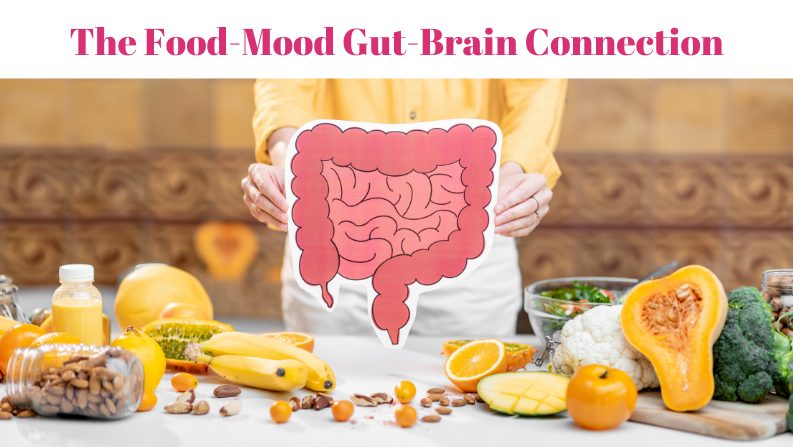I’ve been reading about brain health and how you can improve your mood and brain health with food. Today’s blog is about the gut-brain connection, the foods you should consider adding to your diet and how you can improve your mood with food. Before we get into the science of it, I want you to think about how you feel. Do you feel good, great or do you feel foggy or moody?
The food we eat completely impacts not only the conditions you hear about all the time like heart disease and type 2 diabetes, but it also can help or hinder how your brain works and whether depression, anxiety and cognitive decline is in your future. I am not one to focus on the conditions because I just don’t think it is good for the brain to always focus on the problems. I would rather spend my time and energy on prevention and health promotion, and I want to share with you what you can do to feel great and love your body and your brain.
Okay here we go. Let’s unpack some of the exciting new research about the link between gut health, mood, and stress. This week we’ll talk about your friendly resident gut microbes, probiotic foods, and supplements, as well as offer some simple recipes to keep your gut and taste buds happy.
GUT MICROBES
There are trillions of microbes that happily live in our gut. These friendly microbes do more than help us digest foods, make vitamins, and protect us from the not-so-friendly microbes – they have mood-boosting and stress-busting functions too!
It’s a hotbed of research right now and we’re finding out more about their awesome health and mood/stress benefits every day. And, while the research is just starting to figure out the many gut-brain connections, it’s such a cool new topic that I couldn’t wait to share it with you!
TWEET: “There are more microbes inside our gut, than all the human cells that make us. That’s right, we’re more than half microbe! So, how can they NOT impact our health?”
GUT MICROBES AND PROBIOTICS
The microbes that live in your gut are known as our “gut microbiota”. The microbes that you ingest are known as probiotics.
Probiotics are live organisms that you can eat, drink, or take as a supplement. They turn milk into yogurt, and cabbage into sauerkraut; and they are great for both your gut health and brain health (aka mental health.) Special probiotics that have mental health benefits are called “psychobiotics,” (psycho = mental health, and biotics = live.) They are live organisms that can benefit your psyche.
PROBIOTIC-RICH FOODS AND SUPPLEMENTS
Probiotics can be found in yogurt, sauerkraut (and other fermented veggies), miso, tempeh, and kimchi. You can drink them in kefir or kombucha. Be sure to choose unpasteurized ones that will be refrigerated in your local food store. Unpasteurized foods are not recommended if you are pregnant or have a compromised immune system, so please check with your healthcare provider.
Of course, there are several probiotic supplements available as well. But if you can get the good bugs from your food that is all the better. Check with your healthcare provider to identify which one is best for you. (You can email me to talk about what is best for you.)
Generally, you want to look for one that’s refrigerated and has at least 10 billion active cultures. I also suggest you look for one that has been “third party tested,” which means someone outside the company selling the supplement has tested it and says it’s a quality product.
Be sure to read the label before taking any supplements. The probiotics with the most research are the Bifidobacterium and Lactobacillus types. But we still don’t know enough about the psychobiotic effects to make specific mood-boosting recommendations yet.
Try one of my favorites – “eating bugs never tasted so good with this meal plan recipe” Strawberry Almond Chia Pudding
GUT-BRAIN CONNECTION
It may not seem obvious or intuitive, but your body is interconnected in many ways and more research is focusing on the microbiota, the-gut-brain connection. It’s the very complex connection between your gut, its microbes, and your brain. This new field has been called a “paradigm shift in neuroscience” (Dinan, 2017).
In fact, there are a few ways that we’re beginning to understand how our gut microbes can affect our brain. One is via the vagus nerve, which is a nerve that directly connects your gut to your brain. The other ways are through biochemical messengers. Biochemicals that are made in your gut and travel throughout your body to communicate with other organs, including your brain. Examples of biochemicals include short chain fatty acids, cytokines, and even tryptophan (the amino acid that the neurotransmitters melatonin and serotonin are made from).
The exciting thing is that this may help you with not only mood and stress, but the gut-brain connection may one day prove to be helpful for other conditions connected to brain function.
MOOD, STRESS, AND YOUR GUT
Several studies show that stressed rodents not only have increased stress hormones and stressed behaviors; but they also have different gut microbes! This has also been studied, to a small extent, in people too. One study showed that moms with high levels of stress hormones during pregnancy had infants with fewer helpful gut microbes.
But can it work the other way around? Can changing our gut microbes affect our moods and stress responses?
Studies of rodents that grow up without any gut microbes at all (in a bacteria-free environment) respond to stress more than mice with normal gut microbes. But when those same mice are given a probiotic or gut microbes from non-stressed mice, their stress response lowers or goes back to normal.
“Gut microbiota and probiotics alter behavior and brain neurochemistry.” (Ait-Belgnaoui, et. al., 2012) That’s a pretty powerful statement!
Many animal studies show positive effects on behavior when they get probiotic supplements. After a probiotic, stressed rats had lower levels of both stress hormones and the inflammatory molecule, lipopolysaccharide associated with depression. Human studies show that after a few weeks of eating probiotic foods or taking supplements, healthy people have reduced stress hormones, feelings of stress, negative thoughts, and sad moods.
One fascinating study showed that when people took probiotics, brain MRI tests showed reduced brain activity for negative and aggressive thoughts! Another example of the gut-brain connection working.
There is some exciting research on the positive effect that probiotics can have on moods and stress. So, what can you do today to nurture your own healthy gut microbes?
PREbiotics Support the Gut-Brain Connection
Once the gut microbes take up residence in our guts with probiotic foods and supplements, we need to feed them!
PREbiotics are food for gut microbes and, when fermented in the gut, produce specific changes in bacterial composition or activity. They are your friendly gut bugs’ favorite delicacies, so they’ll happily grow, and multiply. Prebiotics are basically foods that contain fiber. Things like fruits, vegetables, nuts, and seeds. Even dark chocolate, preferably with at least 70% cocoa. Foods that are particularly high in prebiotics include asparagus, avocado, whole grains, and vegetables like onions, garlic, leeks, and shallots. You know what I always say-whole food mostly plants. My favorite way to get in my prebiotics without fail is to eat uncooked rolled oats. I blend them into smoothies and mix them in with nut butter and other seeds to make my own granola type bar. Check out the video below on how exactly to make the granola bars.
Giving animals prebiotics has shown to reduce stress hormones, and anxiety-related behaviors. People studies show that taking prebiotics can improve both the microbes in our gut, as well as our mood. Who doesn’t love that?

